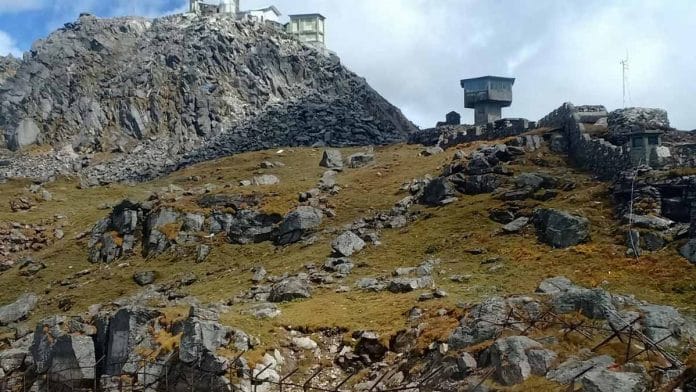New Delhi: India is engaging with China to “facilitate” the resumption of border trade through the Lipulekh Pass (Uttarakhand), Shipki La Pass (Himachal Pradesh) and Nathu La Pass (Sikkim), the Rajya Sabha was informed Thursday, as Prime Minister Narendra Modi is expected to travel to the country at the end of August.
Trade between India and China through these border posts, which was first disrupted during the COVID-19 pandemic, and subsequently due to the chill in diplomatic ties, is yet to be resumed. The two countries have maintained designated markets for trade at the border since 1991, when New Delhi and Beijing signed a protocol for the resumption of trade through the Lipulekh Pass in Uttarakhand.
“However, during the COVID-19 pandemic in 2020, trade through all these points was disrupted, and has not resumed since. The Government of India has engaged with the Chinese side to facilitate the resumption of border trade through all these trade routes,” Kirti Vardhan Singh, Minister of State in the Ministry of External Affairs informed the Council of States in response to a question.
Modi is set to travel to the Chinese city of Tianjin for the Heads of States Summit of the Shanghai Cooperation Organisation (SCO). It will be the prime minister’s first visit to the country since 2018.
Lipulekh Pass was designated as a trading post in 1991, and the protocols for its operation were signed in July 1992. The market sites agreed to for border trade were Gunji in India and Pulan in China. In September 1993, both India and China agreed to a protocol to allow border trade via the Shipki La Pass in Himachal Pradesh, which opened in 1995.
In July 2006, India and China opened a third border trading post via the Nathu La Pass in Sikkim, which was based on the original agreement signed in 1991, and was made operational through the protocols agreed to for the opening of Lipulekh Pass.
Trade through these border posts occurred usually during the summer months between the months of May and November, albeit all posts had their own calendars. Trade between India and China through the Lipulekh Pass had remained closed from 1962, following the war between the two countries until 1991. However, following the 2019 season, the posts were closed during the pandemic.
The border posts have remained closed since. In the summer months of 2020, military clashes broke out in Galwan between India and China. Diplomatic ties between New Delhi and Beijing cratered following the clashes. At one point, India deployed almost 68,000 additional troops, along with military equipment, to the friction points in Eastern Ladakh as ties remained tense.
However, on 21 October, 2024, Indian Foreign Secretary Vikram Misri had announced that both countries had arrived at an agreement for disengagement at the friction points along the Line of Actual Control. This agreement had set the stage for a bilateral meeting between Modi and Chinese President Xi Jinping on the margins of the BRICS summit in the Russian city of Kazan a few days later.
Since the meeting, both India and China have agreed to a number of confidence-building measures to stabilise ties. China allowed the resumption of the Kailash Mansarova Yatra through the Lipulekh Pass earlier this year, while India has started issuing tourist visas to Chinese nationals since 24 July.
Technical teams from the two countries are currently negotiating an agreement to allow for the resumption of direct passenger flights between India and China, which have remained paused since the pandemic.
(Edited by Mannat Chugh)






